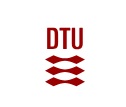This March, MSc student Chloe Martin (Dublin City University, DCU Water Institute) conducted initial trials of the new citizen science tool that is currently being developed for pesticide monitoring. Water samples were collected from two Dublin rivers—the Tolka River and the Santry River—to test the effectiveness of the tool in real-world conditions.
One of the aims of the STARDUST project is to collect data from citizens across Europe, therefore ensuring that the tool is suitable for transportation and storage is critical. For these reasons, the use of a Solid Phase Extraction cartridge, which is a concentration step, attached to a syringe has been identified as a suitable approach and thus was the process applied during this sampling session in Dublin.
As set out in the STARDUST proposal, citizen scientists will collect water samples on a pre-decided Water Blitz Day and by their own discretion at a later date after there has been a hydroclimatic event, such as heavy rainfall, in their area. By collecting citizen science data across a wide range of locations the data provides a comparative analysis and highlights the impact of extreme hydroclimatic events on water quality in the context of pesticides occurrence.

The initial experiments using this citizen science tool has proven to be a success, with the tool being easy to use on site and suitable for implementation into the next stage of analysis in the lab which will include target analysis of pesticides using LC-MS linked to turbidity measurements, where, for example, azoles, noenicitinoids, pyrethroids and relevant metabolites will be targeted. The development of this tool for pesticide monitoring is ongoing and we look forward to sharing the test kits with citizen scientists ahead of the Water Blitz event later this year.


Written by Chloe Martin, MSc student at Dublin City University, DCU Water Institute.








